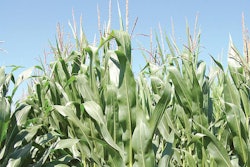
There is increasing concern over the possible spread of African swine fever (ASF) in southern China as the result of adverse weather.
African swine fever (ASF) has been detected at a farm in Kayah state, according to Myanmar’s livestock ministry. In its official notification to the World Organisation for Animal Health (OIE), it records a single outbreak at a farm with 120 pigs near the town on Loikaw at the end of June. More than 91 of the animals died, and the rest have been destroyed.
Source of the infection is unknown, but illegal movements, swill feeding and fomites are suspected of spreading the virus.
Earlier this year, ASF was detected in the states of Shan and Kachin. Located in eastern Myanmar, Kayah lies to the south of Shan state, and also borders Thailand. Kachin is Myanmar’s most northerly state, and it shares frontiers with China and India.
Since June, ASF virus has been detected in 46 samples of dead pigs from Kayah state, reports Myanmar Times. As well as 61 mortalities in Loikaw, there have also been 59 in Dimawso township, and a further 19 in Hpruso. Checkpoints have been set up at key locations to prevent the further spread of the disease, within Kayah and to other states.
Flooding raises ASF risks in China
Recent heavy rainfall and flooding in southern China raises the prospect of new ASF outbreaks, according to analysts and industry stakeholders. However, outbreaks are unlikely to be widespread, reports Global Times.
As water levels rose in South China’s Guangxi Zhuang autonomous region and Guangdong province, and Jiangxi province in the east of the country, some pigs escaped from their pens. As the ASF virus can survive for some time, the risk of pigs contracting the disease is elevated.
In response to this situation, China’s agriculture ministry has produced guidance for pig farmers in affected areas. Among the suggestions are close monitoring of herds, sanitation of pig houses and surrounding areas after rains, and disinfection of water supplies in case they have become contaminated.
South Korea on high alert for new ASF outbreaks
With the continued discovery of ASF-infected wild boars in its northern provinces, authorities in South Korea are concerned about a second wave of the disease among domestic pigs.
New measures to be introduced include more farm visits to ensure biosecurity measures are maintained, reports Yonhap. As well as the use of global positioning systems to monitor vehicles that enter pig farms, additional fencing will be installed. This is aimed at preventing contact between domestic pigs and wild boar. Furthermore, there will also be new checkpoints for vehicles in Gyeonggi and Gangwon — provinces in the northern border area where ASF-infected wild boar continue to be found.
South Korea’s most recent ASF cases in farmed pigs were in October 2019. Approximately 400,000 animals were culled to prevent the further spread of infection.
According to the same news agency, the number of wild boar confirmed to be infected with ASF since September 2019 has reached 670. All these animals have been found in these two northern provinces. Over the past week, the agriculture ministry has registered a further two cases in wild boar with OIE — one in each of Gyeonggi and Gangwon.
Last week, it was reported that additional scanners have been installed at Incheon International Airport to reduce the risk of illegal imports of ASF-infected pork products in passenger luggage.
More ASF cases in the Philippines
In a village on the island of Mindanao, 123 pigs belonging to 48 owners have been culled, according to Philippine News Agency. This was carried out following mortalities at the end of June among backyard herds in the commune of Ilian in the province of North Cotabato. Last week, investigations revealed additional unexplained mortalities also in neighboring Magkaalam and Binay. Officials have set up quarantine and movement restrictions in and around these areas of Magpet town.
One year ago, four sites in these two localities were depopulated of pigs in order to stop the spread of ASF.
Vietnam aims to be ASF-free in 5 years
In the past week, the Vietnam’s deputy prime minister has set out plans to gain control over ASF, reports Vietnam News.
Targets for the new national disease control plan are for 90% of Vietnam’s communities to be free of ASF by 2022, and the country should be ASF-free by 2025.
For these targets to be met, timely detection of new infections and preventative action will be required. With the new plan, the authorities are aiming to bring to an end the economic losses and pork supply fluctuations that have been caused by ASF over the past two years.
Nigeria’s official ASF toll approaches 70,000
According to the latest official report to the OIE, the number of pigs lost to the ASF in Nigeria has reached 69,910. The disease has been confirmed in three states: Lagos, Albia and Ogun.
After initially being hesitant to report outbreaks, farmers are now more likely to report their concerns. This is the result of recent awareness campaigns, according to the federal agriculture ministry.
After early cases in February, the number of outbreaks began to increase in May and June. Affected herds included a pig village, and a large farm that supplies markets across Nigeria and in neighboring countries. Local sources have put the number of pigs affected by the disease in Nigeria at close to one million.
View our continuing coverage of the global African swine fever situation.
















